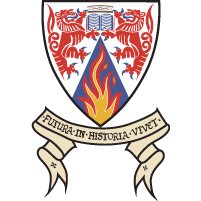An appreciation
Bunny was a familiar face to so many of us in the history and heritage field. A long serving and well respected member of the Nova Scotia Archives staff for over 27 years, Allan, always friendly and avuncular was forever helping us follow the “paper trail” with his extensive knowledge of archival holdings. Allan was a Fellow of our Society and he will be well remembered and greatly missed by us all.
~ James Morrison, President
Obituary
Halifax Chronicle Herald, Saturday, May 9, 2015
DUNLOP, Allan Currie “Bunny”
Born in Halifax October 22, 1944; dies May 5, 2015 in his 70th year, from liver cancer. Allan was the son of Douglas MacDonald “Doug” (died 1975) and Dorothy Agnes “Dot” (Driscoll) Dunlop, (died 2002).; grandson of David Shannon and Melinda (MacDonald) Dunlop, Lyons Brook; great-grandson of James David and Ellen (Shannon) Dunlop, Midlothanshire, Scotland; great great-grandson of David and Julia (MacKinnon) Dunlop, East Lake Ainslie, circa, 1841. He is survived by brothers, Douglas Gregg, Halifax; Grant Watt, Abercrombie; as well as numerous relatives on the Driscoll side of the family. Allan Attended schools in Truro, Bedford, and New Glasgow before graduating from Dalhousie University, B.A. 1967; M.A., 1970. He joined the Public Archives of Nova Scotia and retired 27 1/2 years later on May 31, 1997 as Associate Provincial Archivist. From 1997-2015 he served as Historian for the Nova Scotia Golf Association as well as he was active in many historical, genealogical and archival associations. Thank you to the following medical teams – Hepatologist, Dr. Peltekian; Oncologist, Dr. Alwayn; Palliative Care Unite, Dr. MacIntyre, the VON home care services, and the nurses on 8.4 for their care. Funeral Services will be Saturday, May 16, at 2 p.m. in United Memorial Church, Kaye Street with a reception to follow in Ashburn Golf Club (Old Course) at 3 p.m. Donations to a charity of one’s choice. To leave an online condolence, please visit www.jasnowfuneralhome.com






